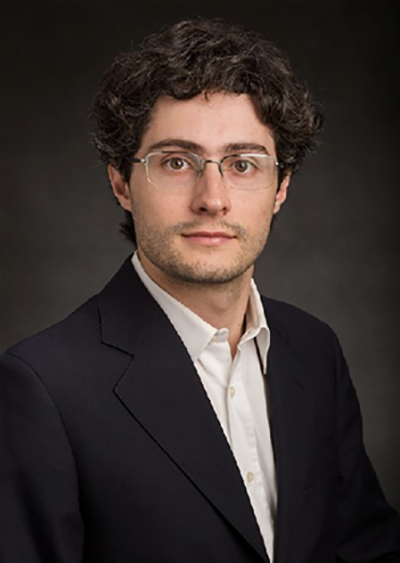MIPSE Seminar
The Plasma-Water Interface: Modern Challenges and New Software Tools
This event is free and open to the publicAdd to Google Calendar

Abstract:
The interaction of low-temperature plasmas with liquid water is a fundamental problem in many applications, from plasma medicine to chemical processing, and more generally where the generation of reactive oxygen and nitrogen species and/or of solvated electrons is of utmost importance. However, characterization of the plasma-liquid interface presents several challenges, both experimentally and computationally, due to the multiscale and multiphysics nature of the problem. In this seminar we provide an overview of recent modeling developments on plasma-liquid interfaces, presenting the new software package Zapdos-CRANE, based on the MOOSE finite-element framework. We provide a brief overview of the software, showing few case studies of interest. The model was used to study a humid argon DC plasma over a water surface, operated in both cathodic and anodic modes. In this system, one of the reactions of interest is the formation and dissolution of hydroxide (OH) radicals, which subsequently produce hydrogen peroxide. The model allows the investigation of the main plasma-chemistry reaction mechanisms for peroxide production with the plasma. The analysis reveals that hydrogen peroxide is increased during anodic plasma treatment due to elevated water vapor dissociation reactions near the interface. Finally, the role of solvated electrons generated during cathodic plasma operations is discussed, showing how they directly degrade hydrogen peroxide in the aqueous phase, inhibiting its accumulation.
About the Speaker:
Davide Curreli is Associate Professor in the Department of Nuclear, Plasma, and Radiological Engineering at the University of Illinois Urbana-Champaign, and at the National Center for Supercomputing Applications. Dr. Curreli leads the Laboratory for Computational Plasma Physics at Illinois. His research activities focus on computational modeling of plasma material interactions and plasma chemistry of low-temperature plasmas for fusion and nuclear applications. Among his current research activities, Dr. Curreli is coordinator of the Nuclear Fireball Plasma Chemistry activities within the University Research Alliance funded by DOD DTRA. His group actively works on multiple projects in Fusion Energy Sciences. Dr. Curreli is Donald Biggar Willett Faculty Scholar at the University of Illinois.
Attend the Seminar:
In the Fall 2021, MIPSE seminars will be conducted in person and simulcast via Zoom.
In person:
Per the University of Michigan COVID-19 policy, all in-person attendees are required to:
- Be vaccinated against COVID-19.
- Complete the ResponsiBlue screening check.
- Wear a mask.
For more information, please check the University of Michigan Campus Maize & BluePrint website.
Remotely:
The Zoom link is posted in the schedule. To request accessibility accommodations, please send an email to [email protected].
 MENU
MENU 
